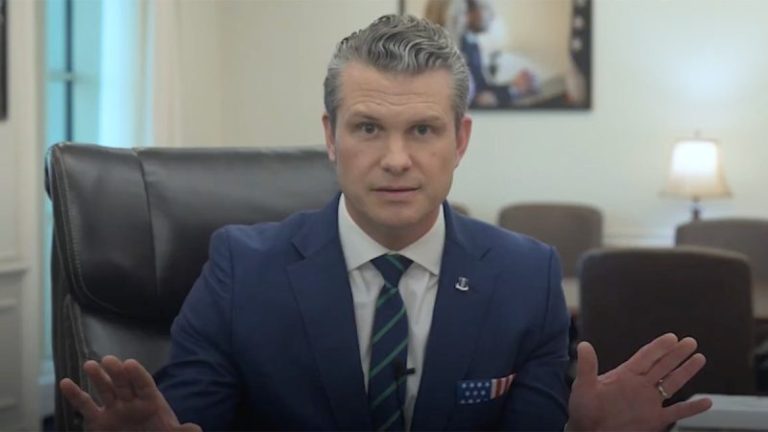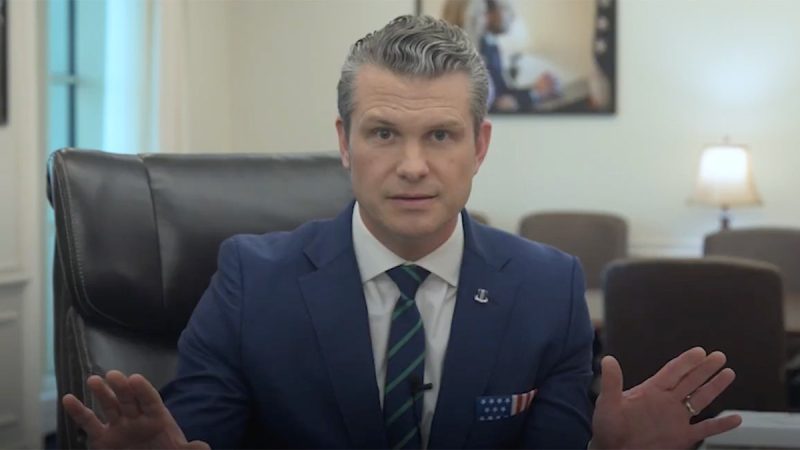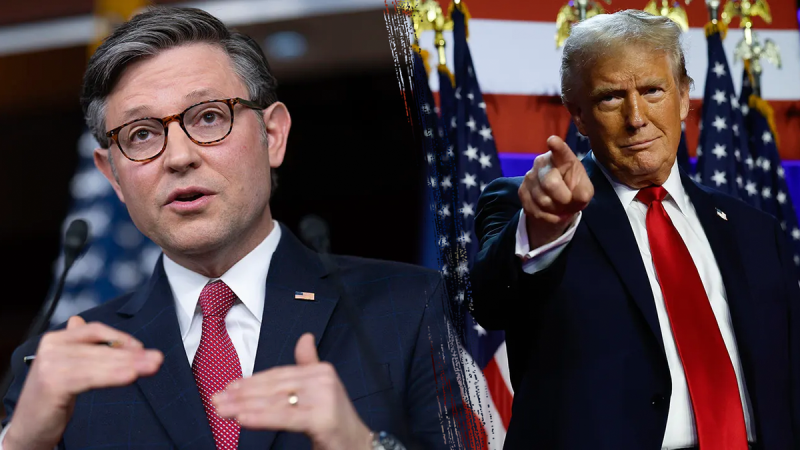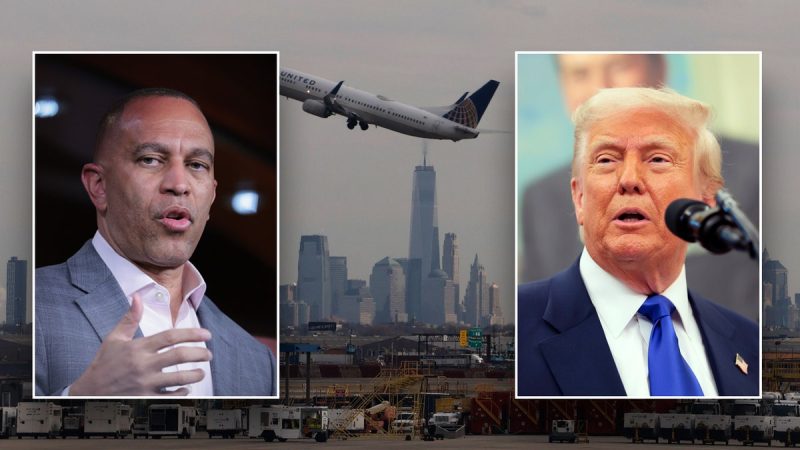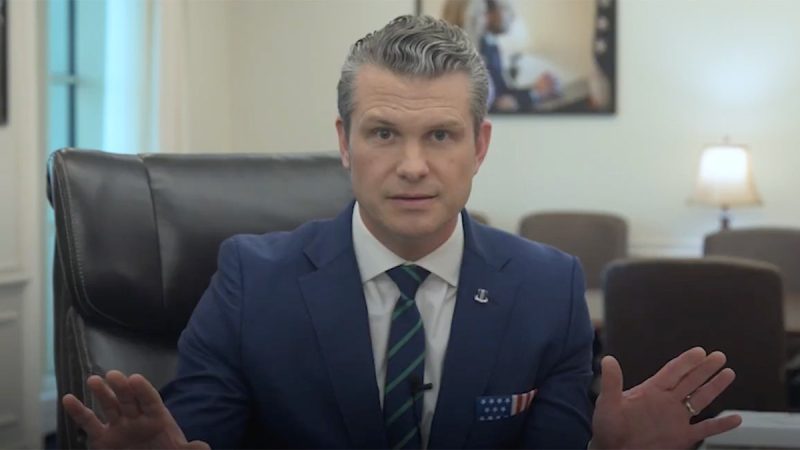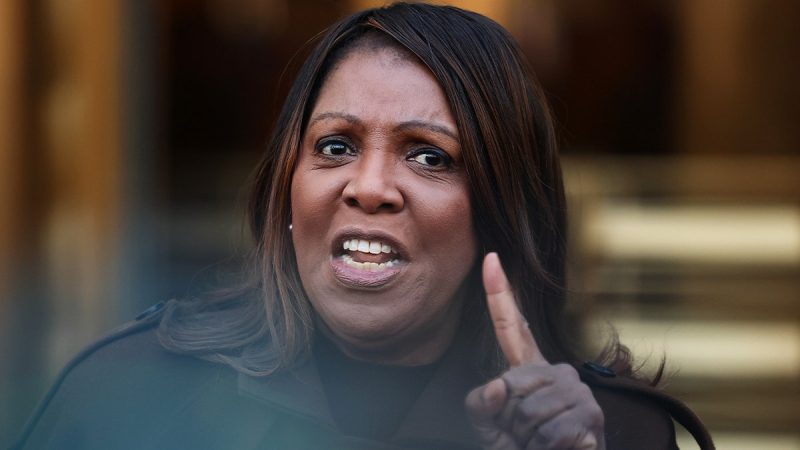
President Donald Trump unveiled a budget blueprint last week that includes roughly $6 billion in federal funding cuts to the National Aeronautics and Space Administration (NASA).
Despite the multibillion-dollar slash, a senior official at the space agency told Fox New Digital that the reduction in funding is actually beneficial for efficiency and exploration.
‘The reductions in the President’s blueprint budget counterintuitively represent an opportunity to truly innovate in how we conduct our space missions,’ senior NASA official Ryan Whitley told Fox News Digital in an exclusive statement.
‘Now is the time to reduce the bureaucracy at NASA and turn our attention to the execution of bold new human missions to the Moon and Mars.’
The proposed plan would cut roughly 24% of NASA’s entire budget, and could phase out some major projects like the Artemis moon program. Artemis, which was conceptualized by Trump in his first term, was designed to push the U.S. to return to moon exploration and came after President Barack Obama canceled the Constellation program in 2011.
The original timeline of the Artemis program included a mission to land astronauts on the moon by 2024 via the Space Launch System (SLS) rocket, but technical challenges have delayed the undertaking several years, and it is now set for at least September 2026 should the program survive the cuts.
While funding reduction threatens some existing programs, the White House touted new investments that would bolster the agency in an effort to beat Chinese space innovations.
‘By allocating over $7 billion for lunar exploration and introducing $1 billion in new investments for Mars-focused programs, it ensures that America’s human space exploration efforts remain unparalleled, innovative, and efficient,’ the White House topline preview reads. ‘To achieve these objectives, the Budget would streamline the NASA workforce, IT services, NASA Center operations, facility maintenance, and construction and environmental compliance activities.’
Aligning with the Trump administration’s movement to improve government efficiency, the White House clarified that the budget ‘refocuses [NASA] funding on beating China back to the Moon and on putting the first human on Mars.’
With a heavy reduction in federal funding, it is most likely that outside contractors and companies like Jeff Bezos’ Blue Origin and Elon Musk’s SpaceX will most likely play a bigger role in launching rockets and exploring space.
SpaceX has conducted 479 launches thus far, and Blue Origin has conducted 31.
As the current head of the Department of Government Efficiency (DOGE), though he has announced his intention of leaving the agency to focus more on Tesla and his other ventures, Musk clarified he had no involvement in NASA budget discussions in a post on X last month.
The budget blueprint and the funding changes to NASA still have to make their way through the legislative process, but the U.S. space agency has stood fast in its position that the current proposal will bolster innovation and exploration.
‘We have accomplished the impossible time and time again, but even the best organizations need to take a hard look in the mirror,’ Whitley told Fox News Digital.
‘For the past 25 years, NASA has had access to billions of dollars to advance human exploration beyond Low Earth Orbit. Despite that, in all that time, the United States has only successfully conducted one—uncrewed—test flight around the Moon,’ he said. ‘We know we are capable of accomplishing much more.’
Preston Mizell is a writer with Fox News Digital covering breaking news. Story tips can be sent to Preston.Mizell@fox.com and on X @MizellPreston




